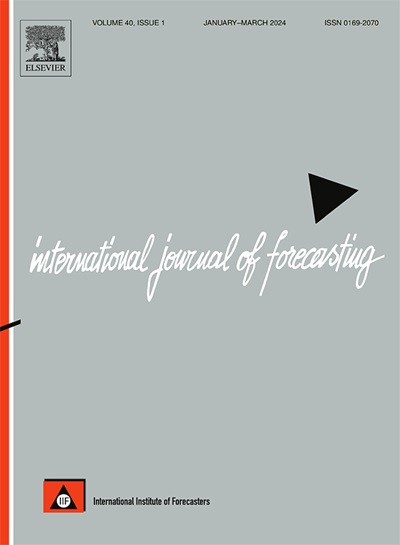Interpretable water level forecaster with spatiotemporal causal attention mechanisms
IF 7.1
2区 经济学
Q1 ECONOMICS
引用次数: 0
Abstract
Accurate forecasting of river water levels is vital for effectively managing traffic flow and mitigating the risks associated with natural disasters. This task presents challenges due to the intricate factors influencing the flow of a river. Recent advances in machine learning have introduced numerous effective forecasting methods. However, these methods lack interpretability due to their complex structure, resulting in limited reliability. Addressing this issue, this study proposes a deep learning model that quantifies interpretability, with an emphasis on water level forecasting. This model focuses on generating quantitative interpretability measurements, which align with the common knowledge embedded in the input data. This is facilitated by the utilization of a transformer architecture that is purposefully designed with masking, incorporating a multi-layer network that captures spatiotemporal causation. We perform a comparative analysis on the Han River dataset obtained from Seoul, South Korea, from 2016 to 2021. The results illustrate that our approach offers enhanced interpretability consistent with common knowledge, outperforming competing methods. The approach also enhances robustness against distribution shift.
基于时空因果注意机制的可解释水位预报
准确预测河流水位对于有效管理交通流量和减轻与自然灾害有关的风险至关重要。由于影响河流流量的因素错综复杂,这项任务提出了挑战。机器学习的最新进展引入了许多有效的预测方法。但这些方法由于结构复杂,缺乏可解释性,可靠性有限。为了解决这个问题,本研究提出了一个深度学习模型,该模型量化了可解释性,重点是水位预测。该模型侧重于生成定量的可解释性度量,它与嵌入在输入数据中的公共知识相一致。这得益于变压器架构的利用,该架构有意设计了屏蔽,并结合了捕获时空因果关系的多层网络。我们对2016年至2021年从韩国首尔获得的汉江数据集进行了比较分析。结果表明,我们的方法提供了与常识一致的增强的可解释性,优于竞争方法。该方法还增强了对分布移位的鲁棒性。
本文章由计算机程序翻译,如有差异,请以英文原文为准。
求助全文
约1分钟内获得全文
求助全文
来源期刊

International Journal of Forecasting
Multiple-
CiteScore
17.10
自引率
11.40%
发文量
189
审稿时长
77 days
期刊介绍:
The International Journal of Forecasting is a leading journal in its field that publishes high quality refereed papers. It aims to bridge the gap between theory and practice, making forecasting useful and relevant for decision and policy makers. The journal places strong emphasis on empirical studies, evaluation activities, implementation research, and improving the practice of forecasting. It welcomes various points of view and encourages debate to find solutions to field-related problems. The journal is the official publication of the International Institute of Forecasters (IIF) and is indexed in Sociological Abstracts, Journal of Economic Literature, Statistical Theory and Method Abstracts, INSPEC, Current Contents, UMI Data Courier, RePEc, Academic Journal Guide, CIS, IAOR, and Social Sciences Citation Index.
 求助内容:
求助内容: 应助结果提醒方式:
应助结果提醒方式:


